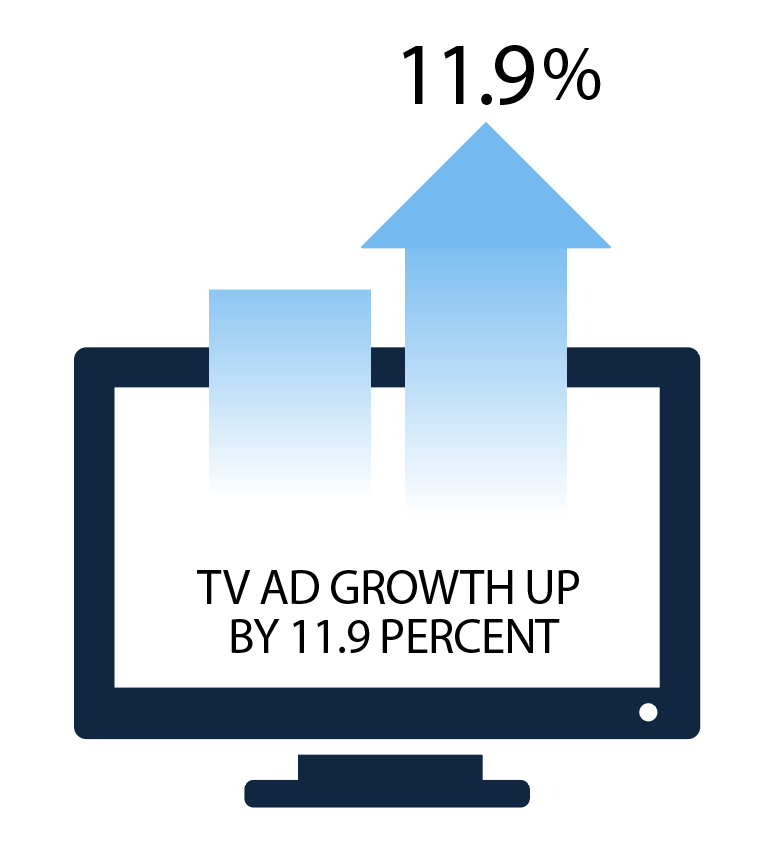The advent of streaming services and other digital channels has spotlighted the TV industry for advertisers. Many wonder what the future holds for the longstanding channel to consumers, looking to market sages to provide some insight.
In this four-part series, we intend to provide an overview of the current state of TV advertising. This series is for broadcasters and local TV networks looking to learn more about the state of TV advertising and how artificial intelligence (AI) is changing attribution in the space.
In this first installment, we’ll cover:
- Is TV advertising dead?
- A look at the TV advertising market
- What we’ll cover in this TV advertising blog series
Is TV advertising dead?
The simple answer is no. TV advertising is not dead. However, while there are plenty of articles backed by that data touting the doom of TV, focusing primarily on cord-cutting, these articles tend to take too narrow of a focus on what’s going on in the space. TV is just another form of video content. And the boundaries between TV, streaming, and digital have become increasingly integrated and blurred.
TV advertising data tells another story as well. Despite all the talk of a digital conquest, TV still ranks as the second most profitable advertising medium in the leading advertising market in the world, the United States. It accounts for a quarter of all US media ad revenue. But as we cover in future blogs, we’ll see that the blurring of these lines across video channels has necessitated the demand for the union of data insights no matter the prescribed video channel.
A look at the TV advertising market
TV Advertising across the board took a hard hit due to the pandemic. Many pulled back ad spending as uncertainties around the economy mounted. At the time, many organizations were trying to protect their business and avoid layoffs, which is understandable. But advertising is not something that you can turn on and off easily, which hurts brand awareness, among other things. We discussed creating an advertising strategy to better prepare for future disruptions on the Veritone One blog.
However, the outlook for TV advertising in global and local markets is very different.
What’s the state of the global broadcast TV advertising market?
Due to the pandemic, the TV advertising market in the United States saw a dip in spending of a little more than 15%, falling to 60 billion. However, television advertising is already seeing a rebound in the US and across the globe. Worldwide TV advertising growth is up by 11.9 percent, growing by 17 billion between 2020 and 2021, then finding a consistent, projected spend of about $131B from 2023 to 2028.

And despite data discussing linear TV in decline, smart and connected TVs are still the centerpiece of households. In fact, two in five consumers now have a next-generation TV with 75 percent of all streamed video coming through a TV set. Naturally, this impacts TV advertising strategies, becoming more hybrid-focused by capitalizing on the vast reach of TV and targeting digital to ensure the message reaches the intended audience.
What’s the state of local broadcast TV advertising markets?
Local markets traditionally have a more strong ebb and flow when compared to global markets. Of all the different video segments, local TV was the only channel to decline in 2021, dropping 13 percent to 16.2. But that’s to be expected in a non-political year. During an election year, local TV advertising always boosts as people turn to local news, increasing ad spending in this space as a result.
The BIA estimated the US’s local advertising spend reached $173.7 billion for 2024, and is expecting an estimated $171 billion in 2025, with the 1.3% decline due to political ads in the election year.
What we’ll cover in this TV advertising blog series
4 TV Advertising Trends Changing the Game
We’ll look at the top four trends in the TV advertising space to help you best leverage the channel.
How Broadcasters Can Justify TV Ad Costs to Advertisers
In this blog, we’ll dive into why broadcasters need to provide metrics of success and how this is achieved to ultimately help them win and retain more business.
Everything You Need to Know About TV Attribution
We’ll explore ad attribution and how this is typically done in linear channels such as TV with new tools that are changing the game for broadcasters.
